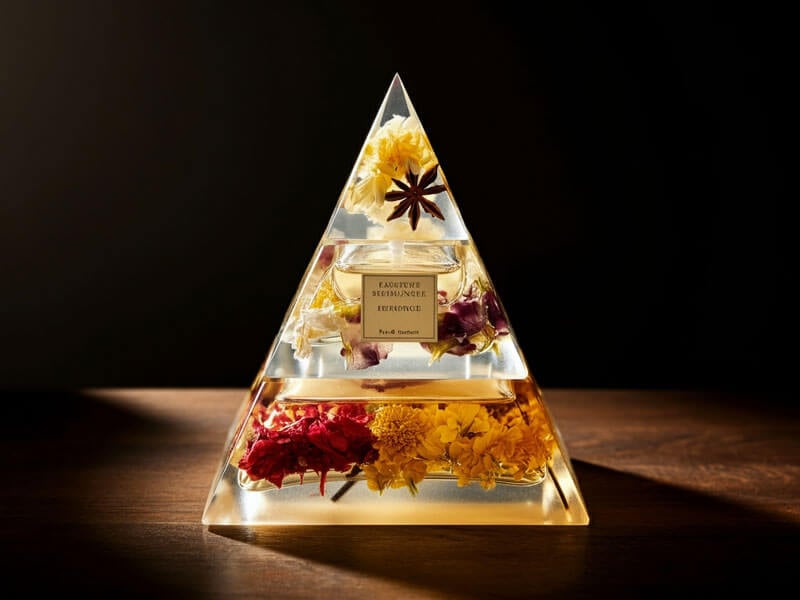When exploring the intricacies of why fragrances don’t last as long as one might expect, it becomes clear that a deeper understanding of the interplay between biological processes, perfume composition, and individual preferences is essential. This article seeks to unravel these complexities, offering insights that will not only satisfy your curiosity but also enhance your overall fragrance experience. Let’s dive deeper into each of the factors affecting fragrance longevity and discover more ways to make your favorite scents last longer.
1. Olfactory Fatigue: The Brain's Adaptation Mechanisms
The concept of olfactory fatigue is not just an interesting biological phenomenon; it's a crucial adaptive feature that helps us navigate our environments more effectively. When we’re exposed to the same scent continuously, our brain chooses to ignore it, allowing us to be sensitive to new and potentially important odors. This can be particularly noticeable with personal fragrances. The brain's tendency to "filter out" familiar smells can lead to the misconception that a perfume has lost its potency.
To combat this, consider applying perfume not just in the morning but at different times throughout the day. Alternatively, a temporary switch to a different fragrance can help reset your olfactory sensors, making your usual scent seem more potent when you return to it.
2. Perfume Preferences and Ingredient Volatility
Understanding the olfactory pyramid is more than just recognizing the different notes in a perfume; it’s about understanding how these notes interact with each other and evaporate from your skin. Each layer of the pyramid—top, heart, and base notes—has its own role and longevity, affecting how a perfume is perceived over time.
For those who prefer light, airy scents characterized by top notes, reapplication throughout the day might be necessary. On the other hand, those drawn to perfumes with a rich base may notice that their scent lingers longer, albeit subtly. Recognizing which type of fragrance suits your lifestyle and scent preferences can significantly enhance your satisfaction with a perfume.
3. The Significance of Perfume Concentration
The concentration of fragrance oils in a perfume not only determines its intensity but also its durability on the skin. Extracts, or parfum, represent the highest concentration and typically offer the greatest longevity. Understanding these concentrations can guide your purchasing decisions, particularly if you are looking for a scent that lasts all day or one that is suitable for a specific occasion.
Experimenting with different concentrations can also provide insights into what works best for your skin type and your sensory preferences. For example, an Eau de Parfum might be ideal for work environments where a subtler scent is appropriate, while an extract could be reserved for evenings or special events.
4. Navigating Partial Anosmia: A Common but Overlooked Issue
The phenomenon of being anosmic to certain scent molecules can profoundly affect how you experience perfume. This condition, often unnoticed, means that some people may not be able to detect certain components of a fragrance that others find prominent. Understanding your own sensory limitations can prevent the over-application of perfume, a common mistake among those with partial anosmia.
Awareness and testing are key in this area. When selecting a new fragrance, take the time to notice how it develops over hours and consult others to gauge its strength and appeal. This approach ensures that you select a fragrance that is both enjoyable and appropriate in its intensity.
5. The Role of Skin Chemistry in Fragrance Longevity
Skin type is not merely a consideration for skincare products but is also crucial in how fragrances are absorbed and maintained on the skin. Factors like pH levels, hormone balance, and even the weather can all influence how a perfume reacts. For example, higher humidity can amplify a fragrance, while a cold, dry day might make it fade faster.
To optimize the longevity of your fragrance, consider your environment and skin condition when applying perfume. Using a moisturizer can enhance fragrance adherence, especially for those with dry skin. Moreover, testing perfumes under various conditions can help you understand how they perform, ensuring that you choose a scent that remains true throughout the day.
Conclusion
By embracing a multifaceted approach to understanding fragrance longevity, you can significantly enhance your experience with perfumes. From the biological bases of olfactory fatigue to the chemical interactions of fragrance on your skin, each element plays a pivotal role in how a scent is experienced. Armed with this knowledge, you can select and use perfumes that not only delight the senses but also last as long as you need them to. Remember, the key to enjoying a fragrance to its fullest lies not just in the scent itself but also in how it interacts with your unique biological and environmental circumstances.





